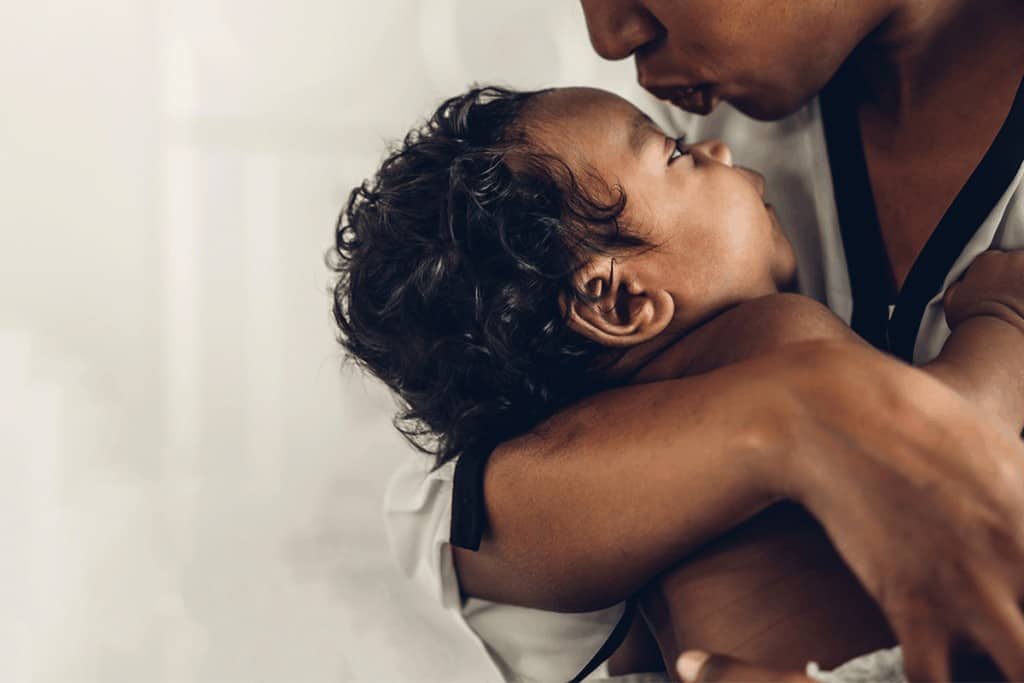
Notes From Olympia: April 22, Interim Updates
Included in this edition: Governor’s Action, New Faces, Deep Dive and More.
A Reminder…
Start Early Washington publishes Notes From Olympia periodically throughout the legislative interim. During this time, we are replacing trivia with “deeper dives,” looking at innovations and issues that intersect with policy. In this edition, our deep dive highlights equity efforts in home visiting. But don’t worry – trivia will be back.
Governor’s Action on Budgets and Bills
On March 31, Governor Jay Inslee completed action on the budget and policy bills passed by the Legislature during the 2022 session. Start Early Washington’s bill tracker has been updated to reflect the bills signed into law. You can find the enacted bills at the top of our resource page.
In one of his final bill actions, Governor Inslee issued a partial veto of the supplemental operating budget, ESSB 5693. Among the Governor’s vetoes was the rejection of the Legislature’s directive that the Office of Superintendent of Public Instruction establish rules for Transitional Kindergarten and that Transitional Kindergarten funding remain at the FY 2022 funding level.
In his veto message, the Governor explained that he could not support this budget proviso because it “…would limit school services for our young learners during and after the pandemic.” He went on to request that the Office of Public Instruction, “… upon the conclusion of a Washington State Institute for Public Policy study, work with agencies and stakeholders … to further define how school districts may grant exceptions to the uniform entry qualifications [for kindergarten] based on the ability, of the need, or both, of an individual student….”
New Faces Heading to Olympia in 2023
When the 2023 legislative session commences Jan. 9, 2023, we will see a number of new faces in the Senate and House of Representative Chambers. As of the most recent count, upward of two dozen current lawmakers have announced they do not plan to run to retain their current seats. These lawmakers fall into three categories – those retiring, those running for another elected office and newer legislators (largely members of color) who cite the long hours, inadequate compensation and the culture of the institution as reasons for not running again.
KUOW/NPR published an interview with Olympia correspondents Austin Jenkins and Shauna Sowersby to get their take on what these changes could mean. Jenkins and Sowersby highlighted the loss of institutional memory with retirement of longtime legislators as well as the opportunity their departures bring to diversify the Legislature and open up more leadership positions. In addition, the Seattle Times ran a column that focuses on how the structure of the legislative process disadvantages legislators of color.
Some of these lawmakers could change their minds and decide to run again. Candidate filing week is May 16-20, and we will have a better idea of how the races are shaping up after filing week.
Early Learning Facility Funding Announcement
On April 13, the Department of Commerce – in partnership with the Department of Children, Youth and Families – announced $43.2 million in grants to 69 early learning facilities across 22 counties to increase the number of children served in ECEAP and Working Connections Child Care. The Department of Commerce received 143 applications requesting $72.9 million in funding.
A total of $80,000 was awarded to four programs for pre-design (maximum award amount of $20,000); a total of $1.68 million to 11 programs for minor renovations and pre-development (maximum award level of $200,000); and a total of $41.52 million was awarded to 54 programs for new construction/major renovations (maximum award amount of $1 million).
Funding for these grants came from the state budget adopted in 2021. The budget recently signed by Governor Inslee contains an additional $23.137 million in competitive grants and $18.5 million in one-time federal funding for minor renovations. The Department of Commerce will start the distribution of this new funding shortly.
Deep Dive: Equity in Home Visiting and ParentChild+

Home visiting and supporting strong families in Washington
Home visiting is a voluntary, proven way to support and strengthen families in the first years of life. Trained home visitors and parents develop a trusting relationship and work together over several years to address prenatal and infant care, child development and parenting skills. It is a multi-generational approach that has the power to positively change the trajectory of an entire family.
Research shows that home visiting programs increase children’s literacy and high school graduation rates, as well as how much parents read to their children. In addition, home visiting programs increase positive birth outcomes for children, improve the likelihood that families have a primary care physician and decrease rates of child abuse and neglect.
Washington state offers nine different home visiting models, each with different outcomes and approaches. Roughly 9,000 families in Washington state participate in home visiting services funded by federal, state, local and private dollars.
Start Early Washington’s home visiting team works in concert with the Department of Children, Youth and Families (DCYF) and other public and private funders in the areas of home visiting, family engagement, program implementation and community service coordination. Grounded in a strengths-based approach, our team (many of whom were home visiting program participants AND home visitors themselves) supports home visiting programs statewide with coaching, consultation, training and general professional development to ensure the highest quality of services to families.
What is ParentChild+?
ParentChild+ is one of the home visiting models supported by Start Early Washington. ParentChild+ has been operating in Washington for 16 years, reaching over 1,400 families and 31 family child care (FCC) providers annually through 17 program sites in King, Yakima and Pierce counties. Supported with funding from the United Way of King County, Best Starts for Kids, the City of Seattle, the Stolte Family Foundation and DCYF, ParentChild+ focuses on reaching families living in under resourced communities with culturally relevant, community-based early learning experiences.
ParentChild+ is an evidence-based school readiness model, working directly with parents as well as Family Child Care and Family Friend and Neighbor (FFN) providers, which preempts the opportunity gap by providing young children and their parents with culturally relevant learning tools and skills. The program reaches families where they are, with two different models:
- Core Model: 92 twice-weekly 30-minute home visits to support healthy development and educational success. Local partner sites prioritize hiring community-based early learning specialists who share a linguistic and cultural background with families. Early learning specialists provide families with high quality learning tools to stimulate parent-child interaction, develop language, early literacy, social and emotional skills, connect families to community resources and build school readiness. It’s very common that participants go on to become early learning specialists themselves.
- Family Child Care: The ParentChild+ FCC model is a 24 week program providing twice-weekly visits to participating FCC and FFN providers. It is an innovative professional development and enrichment approach because it takes place in providers’ homes during their workday. Providers can practice new skills with the children in their care in real time, under the mentorship of an early learning specialist.
ParentChild+ and Race Equity
Since its founding 57 years ago, ParentChild+ has aimed to equalize access to quality early childhood education and support to ensure school readiness. As part of its ongoing commitment to advance racial equity in ParentChild+, the following are some values inherent in its approach:
- Carefully choose literature and materials for home visits that portray multiple cultures and match family values. Home visiting professionals hold great power in selecting materials that allow families to celebrate who they are, including cultural norms, skin color, hair texture and so much more.
- Biases shape our worldview. Identify, unpack and address internal and external biases to ensure the highest-quality and most inclusive services to families.
- Support families in speaking their home language. Speaking to children in their home language is a powerful factor in building and retaining secure parent-child attachments. Embedded within this is the value of hiring staff who reflect the families served.
Developing a pipeline of FCC providers through ParentChild+ engagement
Recently, Start Early Washington received a grant from the Department of Commerce to facilitate a partnership with four other organizations to engage in a community planning process to explore the best ways to create a pipeline of potential FCC providers using ParentChild+’s Core Model and FCC Models as the basis for engagement, outreach, training and support.
As a community-based model focused on working with families and FCC providers from diverse communities and matching them with early learning specialists who share their cultural and linguistic heritage, ParentChild+ is uniquely suited to support the development of new, high quality providers in historically underserved communities.
Partners in this project include Atlantic Street Center (ASC), a Seattle-based ParentChild+ provider focused on reaching African American families; Horn of Africa Services (HOAS), an agency focused on serving African immigrant and refugees in Seattle; Child Care Resources (CCR) which, among its other roles, supports FCC providers and the vast Family, Friend and Neighbor Network in King and Pierce counties; and the ParentChild+ National Office which supports the implementation of the ParentChild+ program
The Department of Commerce grant supports a robust community planning process, utilizing this diverse network of partners, to explore the best ways to create a pipeline for FCC providers in historically underserved communities, many of which were already child care deserts pre-COVID-19. This deep partnership is uniquely situated to examine the possibility of building expanded networks of FCC providers from among parents in the community who have already experienced coaching and support on being their children’s first teachers and now are ready to share their knowledge and skills with other children and families in their communities.
The focus of the project is on:
- Identifying successful ways to build a robust FCC provider pipeline utilizing assets in the community.
- Building a career path for ParentChild+ parents.
- Providing much needed child care in under-resourced communities across King County and Washington state.
Have a suggestion for an Interim Deep Dive? We would love to hear it!
About the Author

Erica Hallock
Director, Policy & Advocacy, Start Early Washington
Erica Hallock serves as the Director of Policy and Advocacy for Start Early Washington. She has worked in early childhood, health and human services policy in both California and Washington state.
More Like This
Contact Us
Connect with our team to learn more about our work or discuss how we can support policy and advocacy work for your organization.
Washington State Hub
Learn more about our work in Washington state and access relevant resources and publications.
